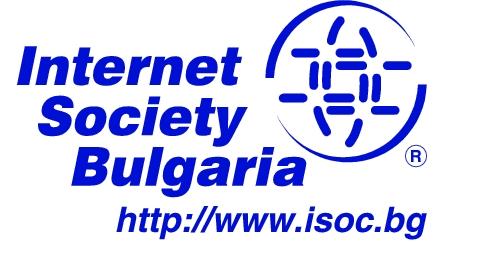SELF Platform Beta launched!
The Beta version of the SELF Platform is already available for testers and early adopters. You can check it right now at beta.selfplatform.eu
Get Involved!
Contribute to the SELF project. See this list of examples of how you can get involved and/or subscribe to one of the mailing lists.
Events
Recent blog posts
- SELF at OpenFest
- SELF in the spotlight on iCommons!
- Reflections on the SELF Platform Launch
- Educational Partnership with SELF
- SELF talk at the Free Software and Open Source Workshop in Varna, Bulgaria
- Creative Commons and Copyleft
- SELF Founding Principles
- Dutch OSS Year book 2006 - 2007
- Interoperability in Bratislava
- Free and Open Source Software Society Malaysia
Internet Society Bulgaria
General data
 Internet Society Bulgaria is an independent, not-for-profit organisation incorporated in Bulgaria in 1995. The Internet Society of Bulgaria is a recognized chapter of the Internet Society, headquartered in Reston, Virginia, USA and Geneva, Switzerland. It has been active in promoting the dissemination and use of the Internet and Free and Open Source Software (FOSS) in all aspects of civil society in Bulgaria.
Internet Society Bulgaria is an independent, not-for-profit organisation incorporated in Bulgaria in 1995. The Internet Society of Bulgaria is a recognized chapter of the Internet Society, headquartered in Reston, Virginia, USA and Geneva, Switzerland. It has been active in promoting the dissemination and use of the Internet and Free and Open Source Software (FOSS) in all aspects of civil society in Bulgaria.
Internet Society Bulgaria is a primary source of reliable information on the development of the information technologies in Bulgaria. Experts from Internet Society actively participate in the work of different administrations and organizations, including the National Assembly, Ministries and agencies within the Bulgarian Council of Ministers.
Main areas of activity
- Promotion of more rapid development of Internet in Bulgaria;
- Promotion of the Information Society;
- Free and open source software;
- Promotion of e-Government initiatives;
- Protection of human rights on the Network.
Brief description of activities in the field of Open Standards & Free Software
Internet Society Bulgaria has strong partnerships established with the leading Bulgarian organisations, involved in Free Software, such as the Free Software Association, Linux Business Solutions and others, as well as with the Linux community. Currently, ISOC.BG actively participates in two FP6 projects, that treat FOSS at international level – these are FlossWorld and Tossad. Among the FOSS related activities of Internet Society Bulgaria is a project that aims to provide support to the e-government initiatives based on Free/Open Source Software at municipal level in South-eastern Europe. According to this project, a number of municipalities in the SEE region implemented FOSS based e-government solutions. Another project is the Global Internet Policy Initiative (GIPI) which supports adoption in developing countries of the legal and policy framework for an open and democratic Internet. The project works with local stakeholders in consultative, coalition-based efforts to promote the principles of a decentralised, accessible, user-controlled, and market-driven Internet.ISOC.BG initiated the International meeting on cyber security in Central and Eastern Europe; significant contribution for the adoption of the new Law for telecommunications in Bulgaria. Internet Society Bulgaria has a number of publications in the Bulgarian and international press covering topics related to the information society.
International Networks and Collaborations
Internet Society Bulgaria has a fruitful partnership with the following global organisations:- Global Internet Policy Initiative (GIPI)
- European Digital Rights Initiative (EDRI)
- Internet Corporation For Assigned Names and Numbers (ICANN)
- United Nations Development Programme (UNDP)
- Creative Commons
- Since 2003, ISOC.BG is an active participant in the World Summit on Information Society (WSIS) in Geneve.
Indicators of Quality and Reputation
The ISOC.BG founding chairman, Veni Markovski, is an elected member of ICANN – the Internet Corporation for Domain names and Addresses (often referred to as the “government of the Internet”) and CPSR (Computer Professionals for Social Responsibility) and is member of the Board of Trustees of the Reston, Virginia headquarters of the Internet Society.He chairs the Bulgarian President's IT Advisory Committee for Bulgaria, the Board of the IT Development Association, and helps the Bulgarian Parliamentary Committee on Transport and Telecommunications. Mr. Markovski has been an active advocate for reform of laws and regulations governing the Internet, working to change licensing requirements on ISPs in Bulgaria, amend his country's laws on computer crimes, and reach agreement with Bulgarian stakeholders on liberalisation of VoIP regulations in 2001.


